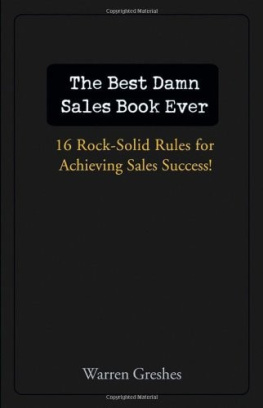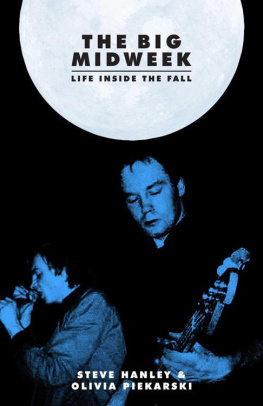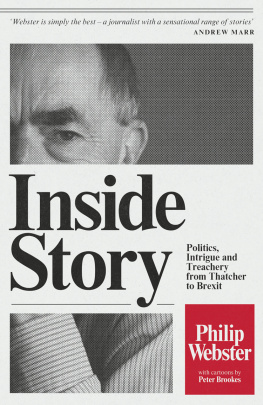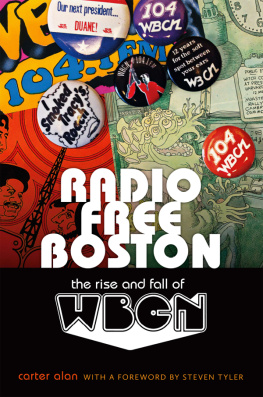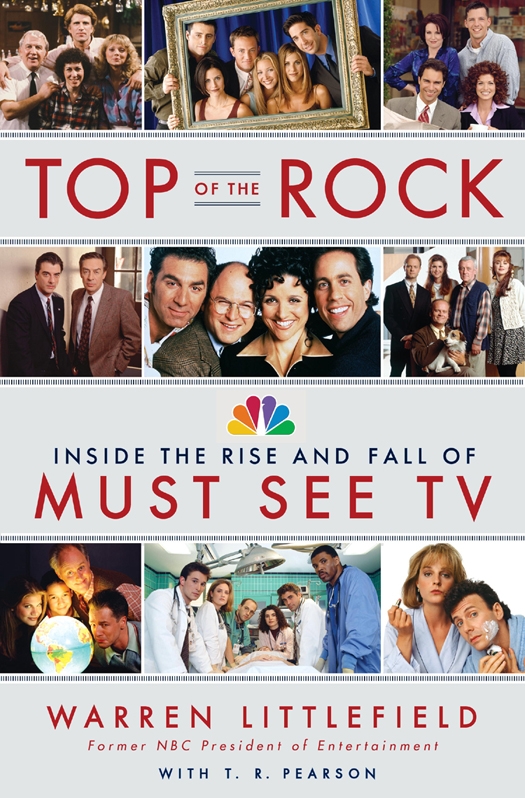Copyright 2012 by Warren Littlefield
All rights reserved. Published in the United States by Doubleday, a division of Random House, Inc., New York, and in Canada by Random House of Canada Limited, Toronto.
www.doubleday.com
DOUBLEDAY and the portrayal of an anchor with a dolphin are registered trademarks of Random House, Inc.
Photo of Marcy Carsey and Tom Werner courtesy of Carsey-Werner Productions.
All other photos by NBC Universal Photo Bank.
Jacket design by John Fontana
Library of Congress Cataloging-in-Publication Data
Littlefield, Warren, 1952
Top of the rock: inside the rise and fall of must see TV:
Warren Littlefield; with T. R. Pearson. 1st ed.
p. cm.
1. NBC Entertainment (Firm) 2. Television programsUnited StatesHistory20th century. I. Pearson, T. R., 1956 II. Title.
PN1992.92.N37L58 2012
791.4509730904dc23 2011031776
eISBN: 978-0-385-53375-1
v3.1
Behind every successful television seriesis a development executive who, at some point in the insanityof the development process, put his ass on the lineso that the show might live.
This book is dedicated to those executives.
Contents
Introduction
One phone call changed everything.
After a decade as Brandon Tartikoffs lieutenant at NBC, Id finally gotten the chance to run the entertainment division on my own. Brandon had taken a job at Paramount Pictures, leaving me as the guy to pick the shows and set the schedule. Credit for NBCs success would be mine, but so would blame for its failure. At that moment, the latter seemed far more likely than the former.
It was the early nineties, and we were flagging as a network. We were flagging a little as a nation as well. Economic malaise had returned with the beginning of the Gulf War and an accompanying spike in the price of oil. High unemployment and government deficits were putting downward pressure on the advertising marketplace. My timing sucked. Wed had a good run, but our shows were old. In the fall of 1991, The Cosby Show was entering its eighth season. The Golden Girls its seventh. L.A. Law its sixth. Viewership was off for each, and our general audience numbers across the schedule had plunged by double digits in a years time. Wed managed to win the May sweeps, but it was the barest of victories. We were neck and neck with CBS and ABC after leading the pack throughout the eighties.
Brandon had timed his departure impeccably. I found myself holding both an exalted new titleNBC Entertainment presidentand the bag.
I drew my chief strength and consolation from our top-rated comedy, Cheers. It may have been approaching its eleventh season, but Cheers wasnt showing its age. Its audience was larger than ever. Cheers had started life in the cellarit was the seventy-seventh highest-rated show out of seventy-seven at the end of its opening seasonbut it had become a perennial top ten show and a revenue powerhouse for NBC.
For me, Cheers was a sentimental favorite as well since Id been associated with it from its inception. I could well remember the pitch for Cheers, conducted over breakfast in the private dining room at NBC in Burbank. Director Jim Burrows with Les and Glen Charles, who would create and executive produce the show, had visited a Boston bar where customers (and their stories) entered through a revolving door. Over scrambled eggs and bacon, they spun out the nearly limitless comic possibilities such a setting would afford. The only sensible response was Lets do it!
We knew we had a gem from the beginning, even if viewers needed a year or so to catch on. With the premiere of The Cosby Show in 1984Cheers third season on the airNBC could boast a Thursday night lineup consisting of Cosby, Family Ties, Cheers, Night Court, and Hill Street Blues. These five shows made for a remarkable evening of television, what we at the network thought of as our Night of Bests.
NBC may have been floundering generally in the early nineties, but Cheers remained our rock. Its audience was huge and reliable (for both original episodes and repeats) and was divided almost evenly between men and women. Thats rare enough in the TV business to approach unique. Better still, Cheers was a bulls-eye show for advertisers dream demographic, the coveted eighteen- to forty-nine-year-old urban viewer with disposable income. It was also an Emmy magnet of unquestioned quality and pedigree.
Produced on stage 25 on the Paramount lot in Hollywood, Cheers was dependable and trouble-free. Two dozen high-caliber episodes each season. A great stable of series regulars with new ones thrown in for variety from year to year. The show was funny as hell and functioned as the spine of the network. It was a tent pole smack in the middle of Thursday night. Without it, we were sure to wallow and drift. I knew Id need Cheers and its reliable success if I were to have any hope of turning NBC around, and there was no reason to think I wouldnt have Cheers to lean on.
Then the call came in.
I was in a meeting in my office at the NBC complex in Burbank when Patty, my assistant, stuck her head in the door.
Ted Danson is on the phone, she said.
Professionally, I knew Ted well. Personally, only a little. Id skied with him once in Colorado, but he rarely phoned me. I decided to step out and take the call at Pattys desk. I thought Ted might have a cause he wanted me to contribute to or an event he wanted me to attend.
Like most Americans whod passed a newsstand or checked out at a grocery store in the previous six months, I had a fair idea of what Ted had been up to. During his last hiatus from Cheers, hed starred opposite Whoopi Goldberg in Made in America, a limp comedy about artificial insemination. In the course of the ten-week shoot in Oakland, Ted and Whoopi had become an unlikely item.
I cant say I was terribly surprised. This sort of thing happens regularly in the entertainment business. Actors on a movie set often behave like counselors at summer camp, so liaisons and divorces are more the rule than the exception. I was only troubled by the fact that Ted starred in a wildly popular weekly comedy that Whoopi claimed to have never seen. The TV executive in me took wounded offense.
Ted and I exchanged pleasantries, and then he dropped the bomb.
This is my last season on Cheers, Ted told me. Im not coming back.
I was staggered. I hoped it was a negotiating ploy, but I couldnt imagine why it would be. Ted was already the highest-paid actor on television at $400,000 an episode.
Ive thought about it a lot and discussed it with Whoopi, Ted told me, and we think this is what I need to do.
By this point, panic had set in. I perched on the edge of Pattys desk and tried to figure out what to say. What to do. How to breathe.
Whoopi thinks I need to find out who Ted is. If I dont, she says Ill never grow as a person.
I know who Ted is, I wanted to tell him. Teds the guy who makes $10 million a year starring in one of the highest-rated shows on television. Ted can afford to find out who Ted is in the off-season.
I had the sharp, metallic taste of rank desperation in my mouth. My mind was racing. I began to wonder what my next career might bring. Back in New Jersey, Id put myself through college as a teamster truck driver. Maybe theyd take me back?



